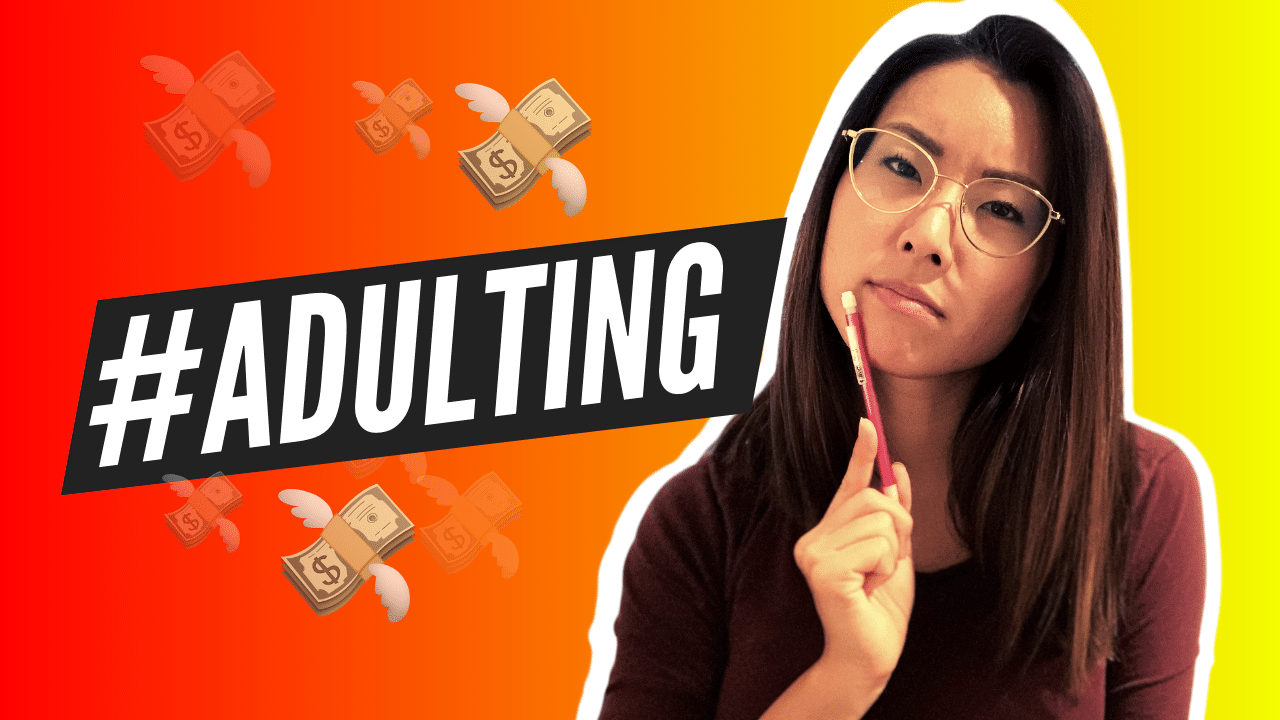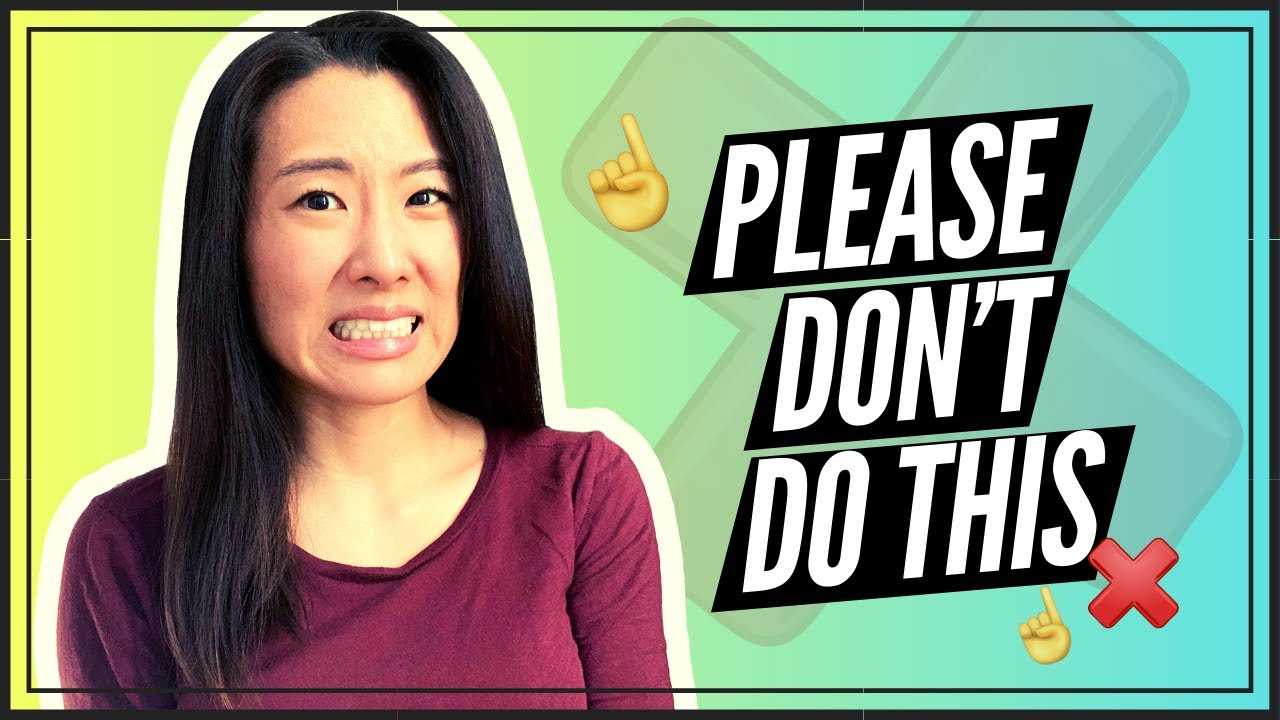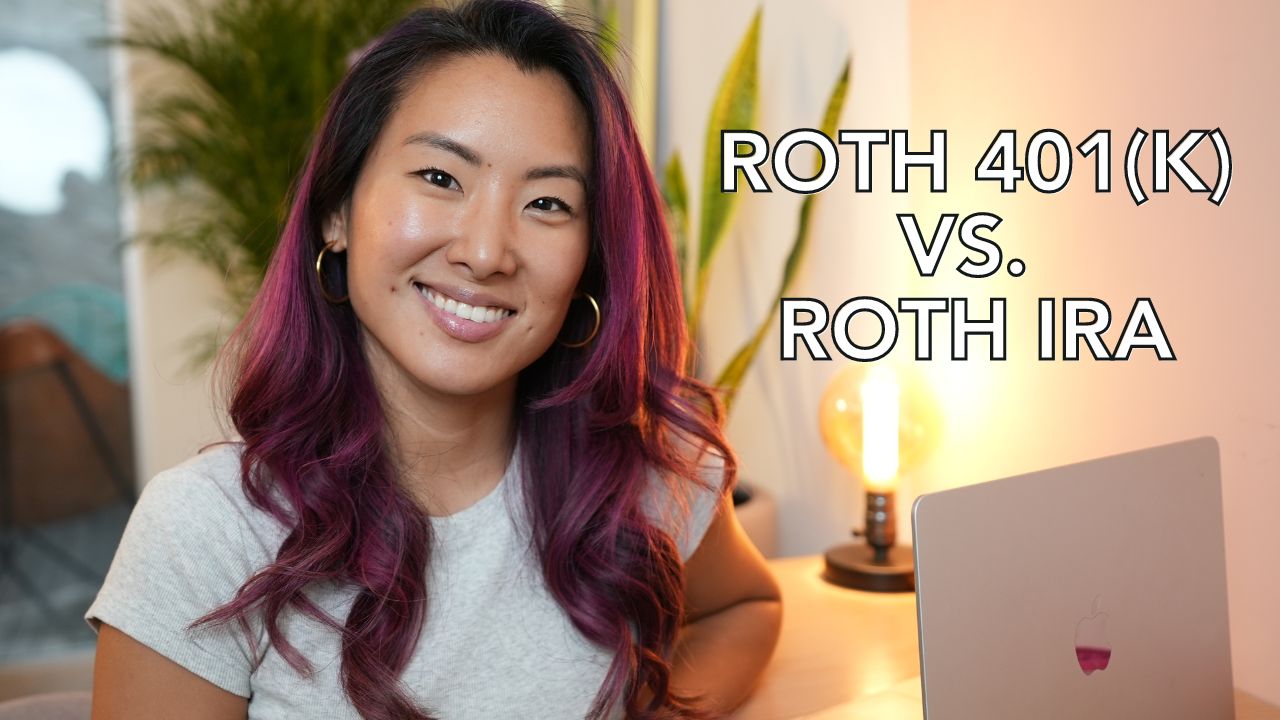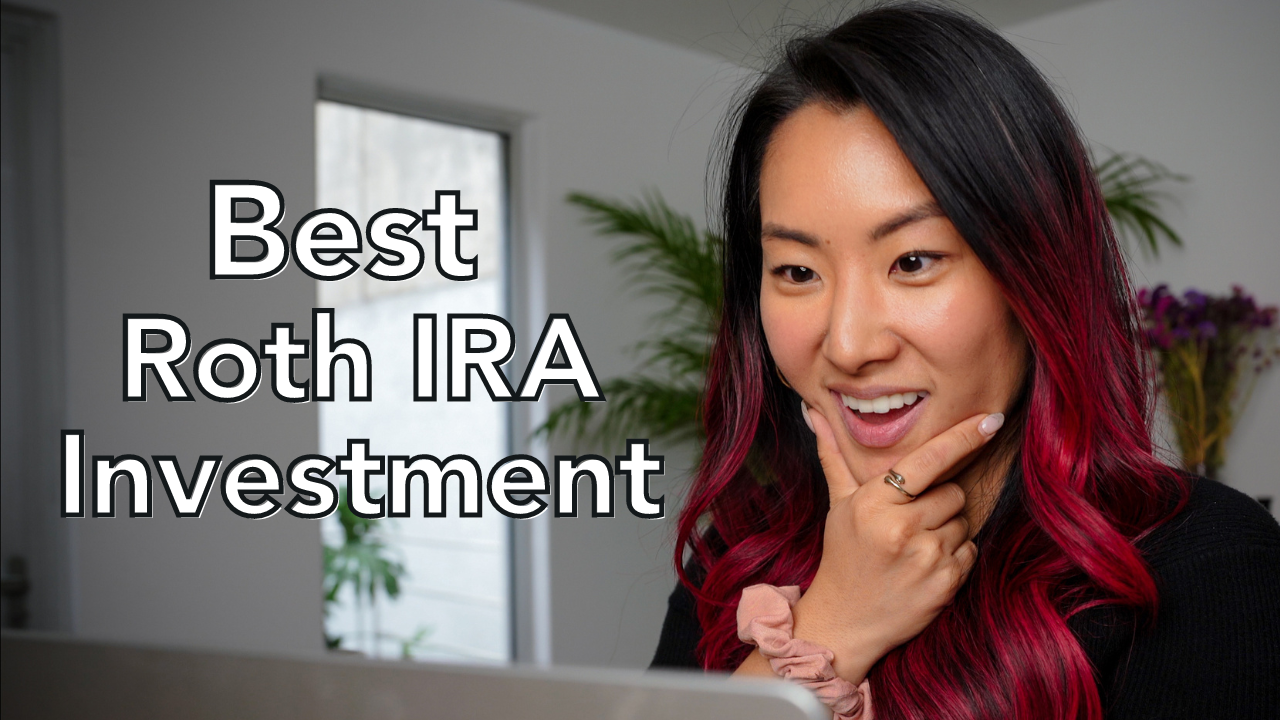Roth IRA vs 401k
Which is better for you and which account should you use to invest with? I personally have a lot of experience with both of these accounts, so I have a lot of valuable insights to share with you.
What you learn in today’s blog is going to save you tens of thousands if not hundreds of thousands of dollars.
Now, this isn’t an exaggeration, because taxes are going to be your single biggest expense in your lifetime. According to Forbes, someone who makes $100k a year can expect to pay over $760k in taxes over their lifetime, which is over $1.4M when adjusted for inflation.
So it makes sense to try to reduce your taxes as much as possible because the less you pay in taxes, the more money you have to save and invest. Roth IRAs and 401ks are powerful ways to build a sizeable nest egg …fast.
In this blog, I’m going to explain:
- Some background info on the Roth IRA and the 401k
- The pros and cons of each account
- And finally, some clear recommendations on which one you should prioritize
So if that sounds good to you, let’s get right into it!
Background information
Let’s start off with some basic background info.
The Roth IRA is named after Senator William Roth, who sponsored the part of the tax code that brought this account into existence. The Roth IRA is a type of retirement account that offers HUGE tax benefits. Although your contributions to a Roth IRA are not tax-deductible, all your profits and earnings in your Roth IRA are tax-free, forever. No matter how much your investments have gone up in value. To put this into perspective, quick illustration on AAPL stock or S&P 500 index fund.
However, there’s no such thing as a free lunch – especially when it comes to the IRS! So the Roth IRA also comes with restrictions – you’re not supposed to make withdrawals of profits from your Roth IRA until you turn 59.5. If you do, you’ll incur a lot of taxes and penalties, so basically it’s not really an option.
The 401k is also a type of retirement account, and it’s named after Section 401k of the IRS tax code. I know… so creative right? 401k plans are sponsored by your employer, and unlike Roth IRAs, your contributions to a 401k ARE tax-deductible. However, all your withdrawals later on when you retire are going to be fully taxable at regular income tax rates.
So the main difference between the two is in the TIMING of the tax benefit. With Roth IRA contributions you get no tax benefit upfront, but you get unlimited tax benefits in retirement. With 401k contributions, you get the tax deduction today, but you eventually pay all the taxes later on in retirement.
Pros and cons
So now that we’ve covered the basics of the Roth IRA and the 401k, let’s take a look at the pros and cons.
Roth IRA:
One of the biggest pros of the Roth IRA is that you’re guaranteed a tax-free retirement, no matter what. You make your contributions with after-tax money, so you take the hit now, but in the future, even if you become a billionaire in the highest tax bracket, you will never NEVER have to pay any taxes on your Roth IRA.
Not only this, but U.S. marginal tax rates have been as high as 94% in the past – during WW2 in the 1940s. And now they’re back to a more reasonable 30-40% range, but if taxes have been that high in the past, it means they can be that high again in the future.
Do you really want to expose YOUR retirement to this kind of political uncertainty?
Other PROS of the Roth IRA:
- You can take out contributions penalty-free. Because your contributions were after-tax, no required distributions, can be used to buy the first house with some restrictions? Unlimited investment options (btw Roth IRAs aren’t investments.
And now for some of the cons:
The Roth IRA has a $6k annual contribution limit. If it were allowed, I’d stash away AS MUCH AS HUMANLY possible in my Roth, but the IRS only allows up to $6k per year.
Another con is that the Roth IRA doesn’t give you any tax deduction today. I know many of you want to maximize your deductions and pay as little taxes as possible this year, but because you get all the tax benefits later in life, the Roth IRA doesn’t do anything to reduce your tax bill today.
Finally, there are income limits to qualify for a Roth IRA. So if you make too much money, you can’t contribute to a Roth IRA. However – there is a really cool way to get around it (and it’s 100% legal), and I show you exactly how to do it in this video. Roth IRA income limits are $124k in 2020 if you’re single, and $196k in 2020, so if you don’t qualify but you want to learn a workaround.
401k:
Moving right along to the 401k! BY FAR, the biggest pro is that 401ks often offer you an employer match. That means that for every dollar you contribute to your 401k, your employer will throw in some money for you as well. It could be dollar for dollar, it could be 50 cents per dollar, it’s whatever your employer offers. At my first job, the employer match was $3 for every dollar I contributed! This is free money.
Another pro is that the annual contribution limit for the 401k is higher. For 2019, it’s $19k vs $6k for the Roth IRA. And that’s not counting employer match. With an employer match, your total allowed contribution is $56k. So if you have a shit ton of money to put away and you need to shield it from taxes, you’ll be thrilled to have a 401k.
Another pro is that you can set up your paycheck so that a % gets routed to your 401k automatically. That way, what actually lands in your bank account on payday is what’s left after you’ve paid into your 401k. Since you don’t even see the money, you’ll hardly feel the pain, and it’s a great way to “trick” yourself into saving.
Finally, two cons: We’ve already talked about the first one – you’ll owe full taxes on your 401k withdrawals in retirement. Most of us have no idea what our tax rates will be at age 65, so there’s lots of uncertainty there. Although the 401k gives you a big fat tax deduction today, you’re just kicking the can down the road because you’ll have to pay the taxes in the future.
Another con is that most 401k plans give you very limited investment options. Most employers only give you a handful of mutual funds to choose from, and you can’t pick and choose your own stocks and ETFs in a 401k. I don’t know about you, but I don’t like being limited to a few mutual funds, I’d rather have full control and freedom over what my money gets invested in.
Recommendations
So we’ve covered a lot here. Let’s wrap it up with some final recommendations:
- If you have a 401k with employer match, max it out – no ifs and or buts! Then max out your Roth IRA. A very wise person once told me, the only thing better than tax-free money, is free money. Just kidding, no one ever told me that, but still… you get my point.
- Now if you have a 401k WITHOUT employer match, then you need to prioritize your Roth IRA. Obviously, this is just MY opinion, and your tax situation could be very different, but for most people, the Roth IRA will be the best thing that ever happened to them.
If you have limited cash flow, and you’re not sure how to prioritize, then here’s a simple way to think about it:
- first, get all the free money
- then, if you have anything left to save, get all the Roth IRA tax-free money
- then, if you still have even more left to save, get all the rest of the tax-free money, by either maxing out the rest of your 401k or using other tax-advantaged vehicles
I know it’s a lot to think about, but it’s worth it. With income taxes in the U.S. around 30%, just investing within either of these retirement accounts gives your investments a 30% head start.
So making the most of 401ks and Roth IRAs is the #1 way to set yourself up for success.
Something I haven’t talked about yet is the Roth 401k. The Roth 401k is like the Roth IRA on STEROIDS. It has the same high $19k contribution limits as the 401k, AND it offers Roth-style tax treatment. It combines the best of both worlds. It’s a fairly new retirement vehicle, but it’s one that I recently opened for myself as a self-employed individual. Your employer might also offer Roth 401ks.






